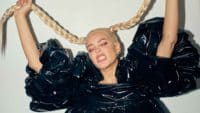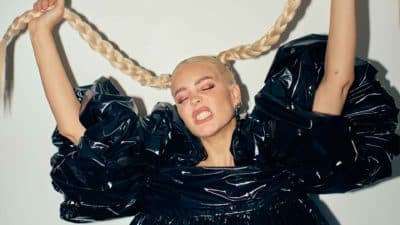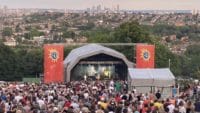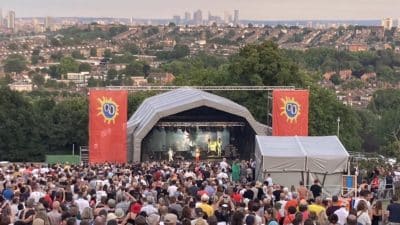Music
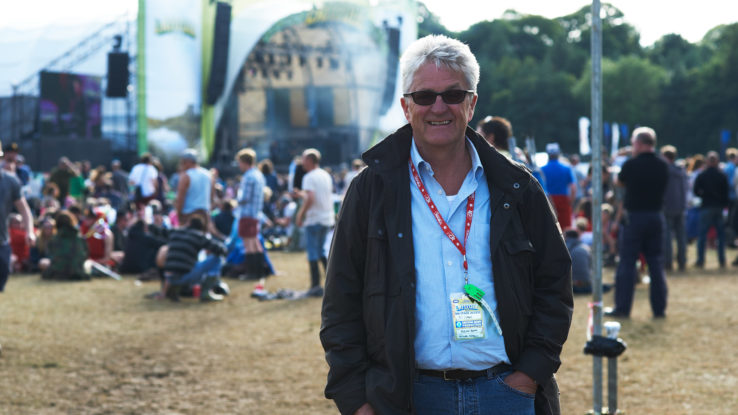
Ticketmaster meets Festival Republic’s Melvin Benn
It’s the first time you’ve had four headliners for Reading and Leeds – how did that come about?
I suppose we were spoilt for choice. We were in a position where we had booked both Blink 182 and the Arctic Monkeys very early last year, and we had been discussing a third headline act from October onwards. From that time Queens of the Stone Age and Paramore were both very clear that they would like to headline the festival.
So we had two bands that we really liked and thought could headline the festival. Two bands that have got a phenomenal history with Reading and Leeds – both have played many times. We had seen them as potential headliners for a couple of years and because we were working with two bands that have such great history with the festival we actually felt really bad about letting either of them down. So we ended up, sort of off the cuff, saying to them we want you both to do it, would you both consider sharing it?
We said it slightly tongue in cheek, not thinking for a minute that they would say let’s have a think about it. But they both came back independently and said yeah we would consider this. We just didn’t think they would agree to it – but they did.
What has the reaction to the Reading and Leeds line-up been like?
The tickets are selling extremely well – slightly faster than last year. So from that point of view, I’d say that in a way people are voting with their feet. So the reaction has been very positive.
How do you decide which acts you want to headline?
If that was a simple answer I think everybody would be doing what I do. The starting point is the act’s relevance to our festival. After that it becomes a discussion about date availability, because acts tour in certain years and not in others, so that very much makes a difference. And then we try to evaluate their sales worth, their strengths, how big they are and whether they are at the point that we consider them to be genuine headliners. So it’s a complicated thing in lots of ways.
But when somebody like the Arctic Monkeys come along and says they would like to headline the festival that becomes as simple as it can be.
Arctic Monkeys and Blink are both headlining for the second time – are you expecting anything different from them this time round?
Of course. Blink 182 have a new album coming out later this year, but certainly what we know about them is despite it being 3-5 years since they last headlined, they will be no less teenage than they were then. So the show will certainly include all of the greats of their catalogue alongside their new album, and of course Arctic Monkeys are at the top of their game at the moment with AM – their songs just keep getting better.
Apart from the headliners who else you looking forward to?
Any number really. It’ll be good to see how Bombay Bicycle Club come through as headliners of the NME/ Radio 1 stage and Vampire Weekend will be an absolutely amazing show – the list is fairly significant.
I also think bands like You Me At Six and Of Mice & Men are coming through really strongly at the moment. It’s great to see Pendulum back – I haven’t seen them on a UK stage for many years.
Over the past few years there’s been more dance and hip hop acts at R&L – do you think this is representative of the way British music and festivals are going?
I think it’s very much so. Last year for the first time I added a three-day dance stage and a three-day hip hop/grime stage with Radio 1Xtra. I added those into the mix because I felt the development of music around the popularity of those genres, so they needed to be in that mix. It doesn’t change the overall feel or shape of the festival, but it certainly adds to it.
You had a lot issues last year at Leeds with the rain – have you taken any steps to improve the campsite this year in case it happens again?
Yeah, very much so. I’ve spent the winter working with the landowner of Bramham Park and he’s very kindly agreed to us putting very extensive land drainage in – particularly in around the main walkways from the campsite to the arena. He’s been very supportive of that. We’ve had a really wet winter, so I’ve been able to see how well the new drainage has performed and I’m very confident it will perform well should there be any rain – and I’m pretty certain there won’t be any.
Apart from the weather, what are the biggest challenges you face putting on a festival as big as R&L?
I’m almost the wrong person to ask. I’ve been doing it for so long that I take it all in my stride. But I guess the weather is the most difficult challenge, as one doesn’t know how it’s going to behave. The rest of it is stuff we feel very comfortable about dealing with, and what we saw at Leeds last year was biblical, it was extreme. I don’t see that coming back in a long time.
Any years at R&L that really stick out for you then?
I’m one of these people that never look back – when it’s gone it’s gone. I’m immediately working on the next festival, and sometimes I’m working on the next festival before the last one has finished. So for me the best one will always be the next one.
I suppose for me the early days of R&L, when we first took over Reading and when I started Leeds in 1999 – they’re the stand out moments for me as that’s really when we started to reshape what festivals were and things like that. Festivals have become such a part of British culture now, but they weren’t always by any means.






